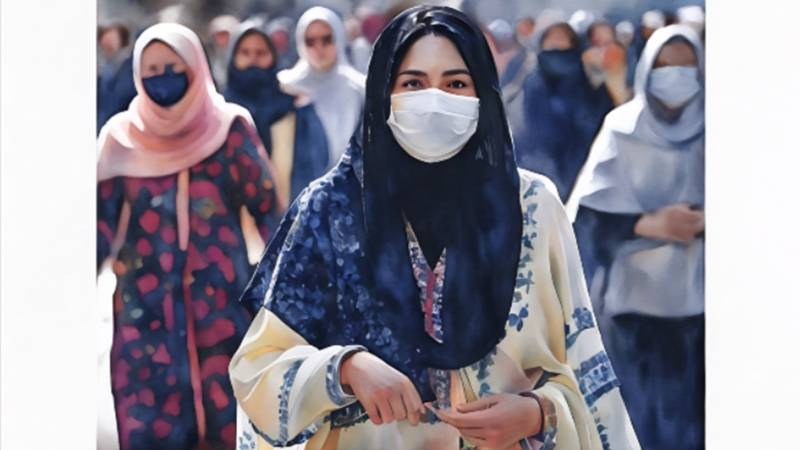
Balochistan, Pakistan’s largest yet most marginalised province, is a land where women’s resilience collides daily with systemic oppression. From tribal patriarchy to state violence, Baloch women navigate intersecting layers of discrimination, their voices echoing both defiance and despair.
Balochistan’s tribal ethos, governed by Sardars and Jirgas, enforces a rigid patriarchal order. Women are confined to domestic roles, their mobility restricted by practices like purdah (seclusion) and early marriages , often used to settle disputes or strengthen alliances. In rural areas, girls are traded like commodities post-conflict, their futures bartered for tribal reconciliation or financial gain. Pashtun women in Balochistan face similar constraints under Pashtunwali – a code prioritising male honour.”
Unlike Punjab, Balochistan lacks women’s police stations or helplines, leaving victims of domestic abuse without recourse
Feudal lords and tribal elites monopolise resources, perpetuating cycles of poverty. Regions like Dera Murad Jamali, Dera Bugti, Kohlu and Sobutpur exemplify this inequality, where women lack access to land, education, and decision-making power. The Sardari system sidelines formal law, leaving women vulnerable to honour-based violence and forced marriages.
State violence exacerbates women’s suffering. Enforced disappearances of Baloch men—often fathers, brothers, or sons—have thrust women into the dual role of caregivers and protesters. Dr Mahrang Baloch is example of one of them. This symbolises this ongoing tragedy.
Unlike Punjab, Balochistan lacks women’s police stations or helplines, leaving victims of domestic abuse without recourse.
Female literacy in Balochistan stands at a dismal 32.8%, with rural areas faring significantly worse. In Dera Bugti, the women’s literacy rate is an alarming 2%. Only 25% of girls’ schools are functional, and most of these lack basic facilities such as washrooms. Tribal norms often deem girls’ education unnecessary, prioritising early marriages instead. Women’s labour force participation is among the lowest in Pakistan, at just 10%, and is largely confined to informal sectors like handicrafts. This economic dependence on men traps many women in abusive households. Maternal mortality rates are alarmingly high due to inadequate healthcare. In Dera Bugti alone, the constituency of the current Chief Minister of Balochistan, Mir Sarfraz Khan Bugti, 35 women have died in the last thirteen months. The Sardar Bahadur Khan Women’s University is the only women’s university in the province, yet it bears a male name—a paradox that underscores the pervasive male dominance in the region. Deaths from preventable causes—postpartum haemorrhages, domestic violence, or lack of medical treatment—are tragically common.
Baloch women are virtually absent from political leadership. While reserved assembly seats for women exist, real power remains concentrated in the hands of male Sardars and establishment-backed figures. Figures like Zubaida Jalal (a former federal minister), the current provincial education minister, and the deputy speaker of the Balochistan Assembly are women, but all of them have come to office through reserved seats. Exceptions like Dr Mahrang Baloch stand out in a system designed to exclude women. The province has no female-led administrative bodies, and initiatives like Punjab’s women’s helplines are entirely absent.
Amidst systemic oppression, Baloch women are redefining resistance. The Baloch Yakjehti Committee (BYC), led by Mahrang Baloch and Sammi Deen Baloch, has mobilised thousands, demanding an end to enforced disappearances and resource exploitation. The former, a physician-activist, embodies this duality. From leading student unions to organising graveside vigils, she frames education and collective action as acts of defiance. These women challenge tribal taboos, risking their lives to amplify Balochistan’s struggles on global platforms.
Balochistan’s women are not mere victims but architects of a movement that bridges tribal legacies and modern resistance. Their fight—against feudal exploitation, state violence, and patriarchal norms—demands urgent attention. To dismantle this oppression, Pakistan must address systemic inequities by investing in education, healthcare, and women’s institutions while halting state repression. Until then, Baloch women will continue their march—from Turbat’s deserts to Islamabad’s streets—carrying the weight of a nation’s silenced hopes.
"Resistance is life,” they chant. For Balochistan’s women, it is the only path to survival.

